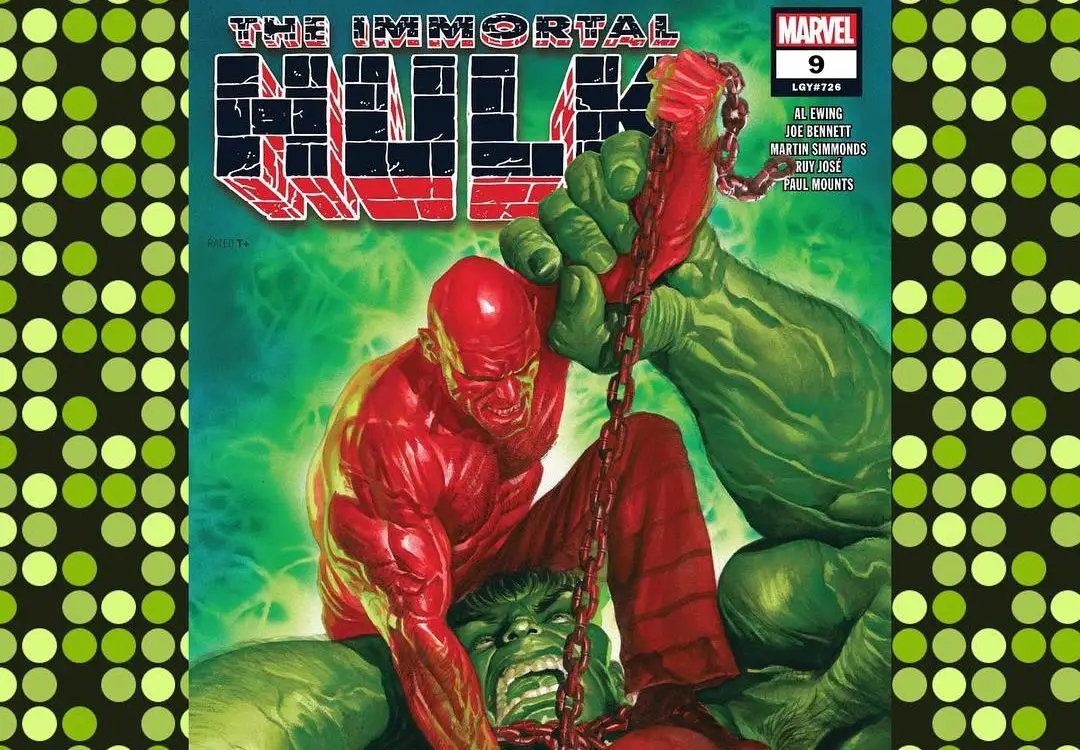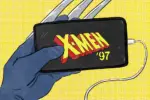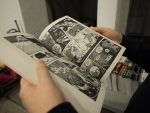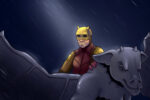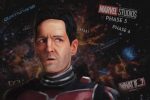Since his first appearance in the comic books series “The Incredible Hulk” in May 1962, the Hulk has seen many interpretations throughout a variety of media, from alternate-continuity series like Ultimate Marvel to recent live-action films such as “Avengers: Endgame.” But perhaps one of the most fascinating — and disturbing — takes on the character has come from Al Ewing, author of the new bestselling series “The Immortal Hulk.”
For those who do not know, Robert Bruce Banner, alter ego of the Hulk, was apparently killed off as recently as three years ago when Hawkeye shot an arrow into his brain. While Banner had supposedly been cured of the Hulk, it was revealed he had given Hawkeye a special arrowhead to use if it ever looked like he would transform into the Hulk again.
For a time, Banner remained dead, with a young man named Amadeus Cho having taken up the mantle of the Hulk. However, in Ewing’s “The Immortal Hulk,” Banner has mysteriously returned from the grave. And so has the Hulk.
Only now, the Hulk has changed. He is not the mindless, raging monster he was before, but something far more cunning and sinister. He is not blinded by anger but is cold in his deliberation. He ruthlessly targets criminals, sadistically punishing them regardless of whatever remorse they feel. He is a vengeful beast who can smell fear and who knows when he is told a lie.
https://www.instagram.com/p/BxfGfJuhqEY/
Unlike the old Hulk, who simply wished to be left alone, this Hulk is knowingly, gleefully cruel toward others, holding a deep contempt for all of humanity.
Banner’s former allies begin to call him the “Devil Hulk,” and for good reason.
Rather than appearing whenever Banner is angry, the Devil Hulk emerges when the sun goes down, much as was the case when Banner first began to transform into the Hulk. Moreover, it has been revealed that this Hulk cannot die. Banner can; he is killed more than once in “The Immortal Hulk,” such as when a gas station robber shoots him in the head.
But when the day ends, and the sky begins to darken, it matters not whether Banner is alive or dead. The Hulk will always come out, for the night is his time to shine.
And Banner will always emerge alive the next day, with no memory of the horrors that unfolded the night before.
If this sounds like a horror story, that is because it very much is one. Ewing draws his inspiration from the original “The Incredible Hulk” series, which was created as a hybrid of the monster and superhero genres. The old series borrowed heavily from classic works of horror, including “Frankenstein” and “The Strange Case of Dr. Jekyll and Mr. Hyde.”
In his earliest appearance, the Hulk was not some misunderstood, childlike creature, but a true and terrible monster who wished evil upon the human race. It was this Hulk that Ewing read about as a child, a Hulk who was “something weirder and more eldritch” than the heroic Hulk he knew from his TV cartoons.
It is thus not surprising the Devil Hulk shares much in common with the Hulk of Ewing’s childhood memory. While perhaps not overtly “evil,” the Devil Hulk is still more than morally questionable in his actions. He shows little mercy to a desperate criminal with a family to feed, for example, or a mournful scientist whose experiments with gamma radiation cost him his son.
Yet there are darker things than this new Hulk at work. For even before Hawkeye, Banner has died and come back; and each time, he has always seen something inexplicable. In the dark oblivion of death, Banner has seen a mysterious green door appear before him. Now the thing on the other side of the door wants out.
More ominous still, Banner soon learns he is not the only person who has seen this door. Other gamma-powered beings, including Sasquatch and Doc Samson, have also borne witness to the otherworldly gateway. Additionally, it seems these irradiated individuals are also incapable of dying.
These strange developments in “The Immortal Hulk” reveal part of Ewing’s brilliance. The author adds to the lore in a significant way, explaining that while gamma radiation in the Marvel universe has a measurable, scientific side, it also has a less rational, more mystical side.
In most cases, a person exposed to gamma in the world of the comics will soon die, much like in our own world. But in rare instances, the eldritch aspect of gamma leads to the creation of incredibly powerful beings whose limitless strength defies reason, the Hulk being a prime example.
The Hulk is thus not a creation of science so much as he is the offspring of unfathomable forces, the likes of which not even Banner himself may ever fully understand. By essentially confirming there is no logical reason for a creature like the Hulk to exist, Ewing gives the character an uncanny mystique, a sense he is more than just an angry giant. For all anyone knows, he could actually be the Devil, come from hell to our world through the sinister green door.
Yet while the Hulk is likely the main attraction for most readers, “The Immortal Hulk” also offers an equally fresh take on Banner.
In many stories, Banner is depicted as timid and depressive, given to moaning over how terrible his situation is. In “The Immortal Hulk,” however, Banner is surprisingly calm despite his dark circumstances. He never cries, never whines, never spends his waking hours wondering what it would be like to be free. He simply does what he needs to do to survive and finds what little enjoyment out of life that he can.
Ewing’s Banner is terrifying in his own way: he is a man for whom horror has become the norm. When he sees the Hulk’s reflection in the window begin to break the glass, he coolly sips his coffee and notes this is unusual.
Between a devilish Hulk, a disturbingly resigned Banner and a strange green door that could well be a portal to hell itself, “The Immortal Hulk” offers a gloriously unholy mashup of horror and superhero. By returning the character to his roots, Ewing has created something new and undyingly fantastic.


